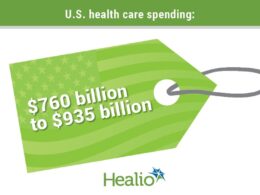Vaccination saves approximately 2–3 million lives every year.
Linkedin
Aylin Tuzel
Country Manager, IM BU Lead at
Pfizer Deutschland GmbH
April 25, 2022
vectorstock
Key messages
by Joaquim Cardoso MSc
Health Revolution Institute
Vaccination Revolution Unit
April 30, 2022
The case of smallpox
The smallpox eradication is considered by many to be the biggest accomplishment in international public health.
- It is estimated that some 300 million people died from smallpox in the 20th century alone.
- In 1967, the World Health Organization launched a worldwide immunization effort, and on May 8, 1980, the 33rd World Health Assembly declared the world free of smallpox. [13 years later]
If the case for prevention is so clear, why is implementation such a hard sell?
- The World Immunization Week aims to promote the use of vaccines to protect people of all ages against disease.
- Vaccines are among the most effective and safest health measures, and they can prevent more than 20 life-threatening diseases, like mumps, influenza and measles.
- They save approximately 2–3 million lives every year
One of the reasons is that the success story of prevention is invisible, and its rewards are not tangible in the here and now.
Let’s collaborate to increase vaccination rates and create a culture of health
Beyond the science, it will take a change in mindset and collective action to increase vaccination rates. Here are some ideas of what that could look like :
- Focus on prevention instead of treatment
- Make it easier to get vaccinated
- Provide better information for patients:
Taking “Make it easier to get vaccinated” as an example
- If there are more incentives and reminders to get vaccinated, more people will get it done.
- Here’s what that could look like: vaccination opportunities in pharmacies, without an appointment or waiting time, or digital vaccination cards that remind people when it’s time to get that jab.
Vaccines, in the pursuit of a long life well lived.
ORIGINAL PUBLICATION (full version)

World Immunization Week: Creating a culture of health
Linkedin
Aylin Tuzel
Country Manager, IM BU Lead at
Pfizer Deutschland GmbH
April 25, 2022
If every scar tells a story, then the one on my left arm is a happy one.
It is small, round and distinctive, and it tells the story of the smallpox vaccination I received as a child in Istanbul in the early seventies.
Back then, it was still routine to get vaccinated for the contagious disease, which killed up to 30 percent of the people who became infected.
It is estimated that some 300 million people died from smallpox in the 20th century alone.
It is estimated that some 300 million people died from smallpox in the 20th century alone.
These days, my children’s vaccination cards list vaccines against many diseases, including tetanus, diphteria, and pertussis — but not smallpox.
Thankfully, the virus no longer exists in the world today (outside of research laboratories).
My generation was one of the last to receive a vaccination against it, with a permanent mark on their arm to prove it.
In 1967, the World Health Organization launched a worldwide immunization effort, and on May 8, 1980, the 33rd World Health Assembly declared the world free of smallpox.
These days, my children’s vaccination cards list vaccines against many diseases, including tetanus, diphteria, and pertussis — but not smallpox.
In 1967, the World Health Organization launched a worldwide immunization effort, and on May 8, 1980, the 33rd World Health Assembly declared the world free of smallpox [13 years]
Now that the harsh Berlin winter is finally over and the brave among us are rotating out our thick winter sweaters for short-sleeve shirts, I see that familiar scar more often.
Whenever I do, it makes me smile. To me, it symbolizes a great success story of science, collective action and prevention.
The smallpox eradication is considered by many to be the biggest accomplishment in international public health.
The smallpox eradication is considered by many to be the biggest accomplishment in international public health.
If the case for prevention is so clear, why is implementation such a hard sell?
The World Immunization Week aims to promote the use of vaccines to protect people of all ages against disease.
Despite tremendous progress, far too many people around the world still have insufficient access to vaccines.
There is much work to be done, and Pfizer has been working with Gavi, an international organization that brings together public and private sectors to create access to vaccines for infants and young children, since March 2010.
Vaccines are among the most effective and safest health measures, and they can prevent more than 20 life-threatening diseases, like mumps, influenza and measles. They save approximately 2–3 million lives every year.
The case for prevention is clear. So, why is the implementation of preventive health measures such a hard sell, even in countries in which broad access is a reality?
Vaccines are among the most effective and safest health measures, and they can prevent more than 20 life-threatening diseases, like mumps, influenza and measles. They save approximately 2–3 million lives every year.
The case for prevention is clear. So, why is the implementation of preventive health measures such a hard sell, even in countries in which broad access is a reality?
One of the reasons is that the success story of prevention is invisible, and its rewards are not tangible in the here and now.
The absence of disease is not noticed by those who are protected, which makes it easy to underestimate the benefit of getting vaccinated.
Take measles, for instance: Safe and effective vaccines have been available since the 1960s. Member States in all WHO regions have adopted measles elimination goals.
Yet, this highly contagious disease still causes deaths among young children globally, and outbreaks continue to grow in Europe and the U.S.
One of the reasons is that the success story of prevention is invisible, and its rewards are not tangible in the here and now.
Let’s collaborate to increase vaccination rates and create a culture of health
We all have our part to play in a society that focuses on health and prevents disease wherever possible.
The pharmaceutical industry has a responsibility to further improve existing vaccines and develop new ones to protect people from previously incurable diseases.
Pfizer manufactures vaccines against several infectious diseases, and our scientists are working on new vaccines as well as new generations of existing vaccines.
They are also working on vaccines against serious bacterial infections, for example those caused by so-called hospital germs, and therapeutic vaccines — for example, against cancer.
Beyond the science, it will take a change in mindset and collective action to increase vaccination rates. Here are some ideas of what that could look like in Germany:
- Focus on prevention instead of treatment:
Health needs to have a higher priority than illness in our society and healthcare system.
This means that higher investments are needed, e.g. in vaccination services and vaccination consultations.
- Make it easier to get vaccinated.
If there are more incentives and reminders to get vaccinated, more people will get it done. Here’s what that could look like: vaccination opportunities in pharmacies, without an appointment or waiting time, or digital vaccination cards that remind people when it’s time to get that jab.
… vaccination opportunities in pharmacies, without an appointment or waiting time, or digital vaccination cards that remind people when it’s time to get that jab.
- Provide better information for patients:
Patients need easily accessible information about the benefits of getting vaccinated against all kinds of diseases.
Ideally, this information should reach them right where they are — in everyday life, at school or at work.
Beyond the science, it will take a change in mindset and collective action to increase vaccination rates.: (1) Focus on prevention instead of treatment; (2) Make it easier to get vaccinated; and (3) Provide better information for patients.
This morning, as I reflect on World Immunization Week in a short-sleeve shirt, I feel optimistic.
Through strategic efforts and collaboration, more big accomplishments in international public health are just around the corner.
Or, to quote this year’s theme: Vaccines, in the pursuit of a long life well lived.
Vaccines, in the pursuit of a long life well lived.
Originally published at https://www.linkedin.com.












